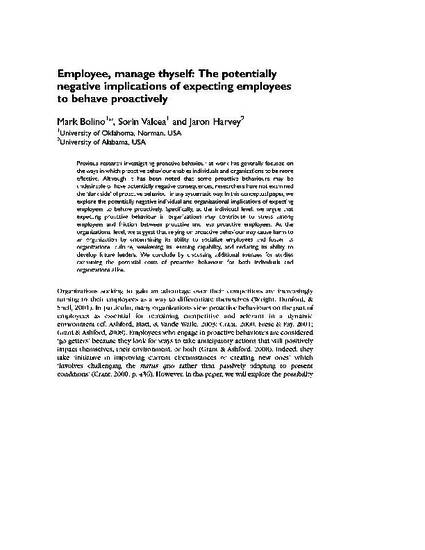
- proactive behavior; management; negative effects
Previous research investigating proactive behaviour at work has generally focused on the ways in which proactive behaviour enables individuals and organizations to be more effective. Although it has been noted that some proactive behaviours may be undesirable or have potentially negative consequences, researchers have not examined the ‘dark side’ of proactive behaviour in any systematic way. In this conceptual paper, we explore the potentially negative individual and organizational implications of expecting employees to behave proactively. Specifically, at the individual level, we argue that expecting proactive behaviour in organizations may contribute to stress among employees and friction between proactive and less proactive employees. At the organizational level, we suggest that relying on proactive behaviour may cause harm to an organization by undermining its ability to socialize employees and foster its organizational culture, weakening its learning capability, and reducing its ability to develop future leaders. We conclude by discussing additional avenues for studies examining the potential costs of proactive behaviour for both individuals and organizations alike.
